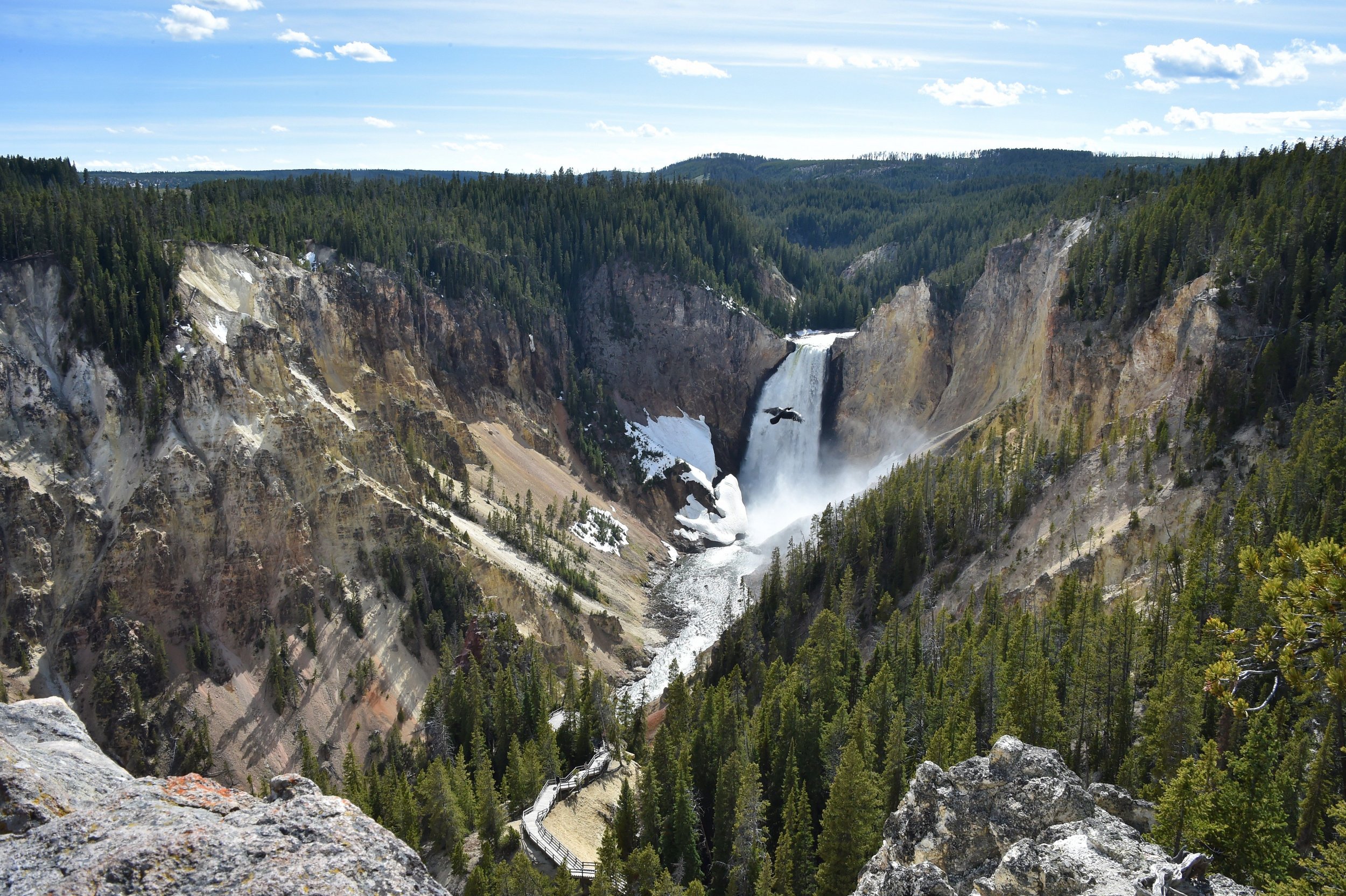
Yellowstone National Park saw more than 200 measurable tremors in the week and a half between February 8 and February 18, according to the U.S. Geological Survey. In total, the area has experienced many more shakes, but the additional ones were too tiny for scientists to pin down their origins.
The activity, which earthquake specialists call a swarm, is fairly standard for Yellowstone. In fact, this month's quivers are even taking place in Maple Creek, the same region of the park as a swarm last summer that included about 2,400 quakes. Since USGS commented about the new swarm on February 18, activity has died down a little.
"It's slowly petering out, although these things wax and wane, so it's a bit difficult to say that it's ending," Michael Poland, the scientist in charge of the USGS's Yellowstone Volcano Observatory, told Newsweek. He added that this is completely normal behavior for the region. "Yellowstone is just a very swarmy place."
So far, the largest quakes scientists have been able to measure in the current swarm have been three magnitude 2.9 quakes on February 18. That's many times smaller than the most serious earthquakes that have been measured in the area over the past few decades, like a 1959 earthquake of magnitude 7.3 that caused deaths, or a 1975 earthquake of magnitude 6.1 that hardly even caused damage.
There's no ironclad definition for an earthquake swarm, but they represent an uptick in seismic activity that isn't tied to a particular larger main shock being followed by a series of smaller aftershocks. "There's no one event that started it out," Poland said. It's quite normal behavior for Yellowstone, particularly in this part of the park, which is more seismically active.
Although Yellowstone is also home to a supervolcano that has geologically caused what the USGS deems "cataclysmic" eruptions, the last of those occurred about 640,000 years ago and there is no sign another is due any time soon. Magma moving around below the surface can sometimes trigger earthquakes, including at Yellowstone, but there's no evidence for the reverse—seeing a burst of small shakes does not make scientists suspect any volcanic activity will begin.
Read more: Yellowstone Supervolcano: An Eruption Isn't Coming, But Here's What Scientists Would See
"In terms of a hazard, it's not particularly concerning at all because this is just what Yellowstone does," Poland said. "This is Yellowstone being Yellowstone."
But just because it isn't concerning doesn't mean it isn't interesting. "I always find these swarms to be scientifically very exciting," he added. They are an opportunity to learn more about what's really happening underground. Previous Yellowstone swarms took place in 2004, 2009 and 2010, as well as the 2017 swarm.
After swarms quiet down, scientists can use their data to pinpoint exactly where the ground is moving, which can help identify faults in the Earth's crust and motion along those faults. Developments like that can help scientists not just explain the particular swarm, but hone their understanding of the Yellowstone region as a whole.
Uncommon Knowledge
Newsweek is committed to challenging conventional wisdom and finding connections in the search for common ground.
Newsweek is committed to challenging conventional wisdom and finding connections in the search for common ground.
About the writer
Meghan Bartels is a science journalist based in New York City who covers the science happening on the surface of ... Read more
To read how Newsweek uses AI as a newsroom tool, Click here.








